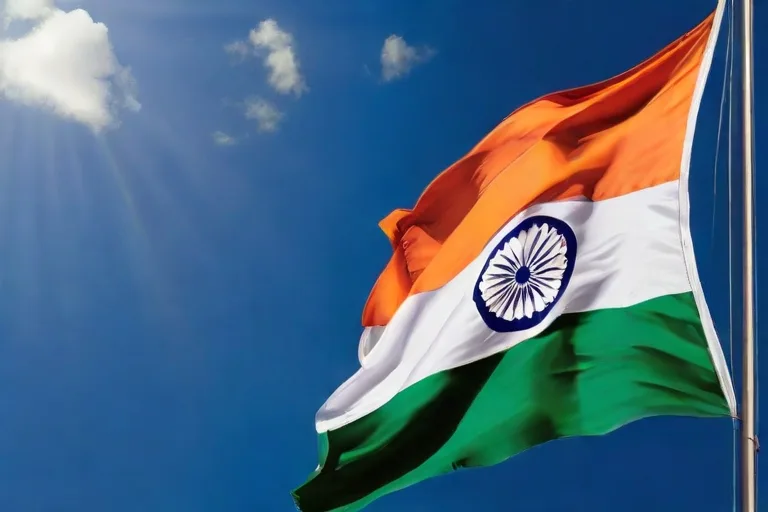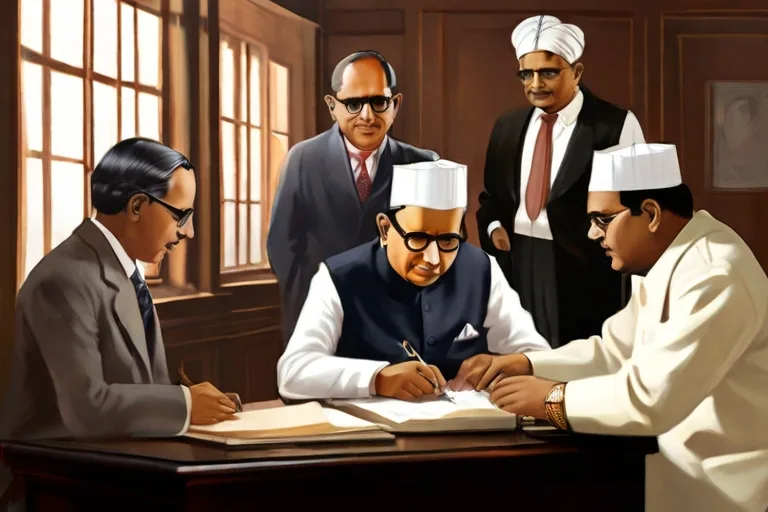The Constitution of India is the highest legal authority in the country. It lays down the basic framework of the Indian political system, the structure and functions of the government, the rights and duties of the citizens, and the principles of governance. The Constitution of India is the longest written constitution in the world, with a total of 448 articles, 25 parts, 12 schedules, 5 appendices, and a preamble as of 2024. The Constitution of India was drafted by a Constituent Assembly, which was elected by the provincial assemblies in 1946. The drafting committee was headed by Dr. B.R. Ambedkar, who is widely regarded as the chief architect of the Constitution of India. The Constituent Assembly adopted the Constitution of India on 26 November 1949, but it came into force on 26 January 1950, which is celebrated as the Republic Day of India every year. The Constitution of India reflects the diversity and unity of the Indian nation, and embodies the aspirations and values of its people..
Table of Contents

What is a Preamble?
A preamble is an introductory statement in a document that explains the document’s purpose and underlying philosophy. It also indicates the source from which the document derives its authority, such as the people or a higher power. A preamble can be found in many types of documents, such as constitutions, statutes, treaties, declarations, etc.
For example, the preamble of the Constitution of India presents the principles of the Constitution and the objectives of the nation. It also declares India as a sovereign, socialist, secular, democratic, and republic state. The preamble of the Constitution of India is based on the Objective Resolution, which was moved by Jawaharlal Nehru in the Constituent Assembly in 1946.
The Preamble sets forth the goal of the Constitution and helps to clarify the meaning of its provisions when the language is found ambiguous. However, the Preamble has no legal binding and cannot be enforced by the courts.
Contents of Preamble
We the people of India:
This phrase indicates that the constitution derives its authority from the people of India, who are the ultimate sovereigns of the country. It also reflects the democratic spirit of the constitution, which is based on the consent of the governed.
Sovereign:
This term means that India is an independent and self-governing state, not subject to the control or interference of any other external power. It also implies that India has the right to determine its own domestic and foreign policies, as well as its relations with other nations.
Socialist:
This term was added to the preamble by the 42nd amendment in 1976. It means that the constitution aims to achieve social and economic justice for all citizens, by reducing inequalities and ensuring a fair distribution of resources and opportunities. It also means that the constitution promotes a democratic and cooperative form of socialism, not a totalitarian or violent one.
Secular:
This term was also added by the 42nd amendment in 1976. It means that the constitution guarantees freedom of religion and conscience to all citizens, and does not favour or discriminate any religion over another. It also means that the state maintains a neutral and respectful attitude towards all religions, and does not interfere with their affairs, unless they violate the law or public order.
Democratic:
This term implies that the constitution establishes a form of government that is based on the will of the people, expressed through periodic and fair elections. It also implies that the constitution ensures the participation and representation of all sections of society in the governance of the country, and protects the rights and freedoms of the citizens from any arbitrary or oppressive actions of the state.
Republic:
This term indicates that the head of the state is an elected person, not a hereditary monarch. In India, the president is the nominal head of the state, elected indirectly by an electoral college. The president exercises his or her powers in accordance with the advice of the prime minister and the council of ministers, who are collectively responsible to the parliament.

Objectives of Indian Constitution
The objectives of the Indian Constitution are the fundamental principles and values that guide the governance and development of the country. The preamble states the goals of securing justice, liberty, equality, and fraternity for all its citizens. Let us look at each objective in detail:
Justice:
This is one of the most important objectives of the Constitution. It means that the Constitution aims to create a society where everyone is treated fairly and impartially, without any discrimination or oppression. Justice has three aspects:
Social Justice: This means that the Constitution wants to eliminate the inequalities and injustices that exist in society based on caste, creed, gender, religion, or any other ground. It also wants to promote the welfare and dignity of the weaker and marginalized sections of society, such as the Scheduled Castes, Scheduled Tribes, women, and minorities.
Economic Justice: This means that the Constitution wants to ensure that everyone has equal access and opportunity to the resources and benefits of the country, regardless of their wealth, income, or economic status. It also wants to prevent the concentration of wealth and power in the hands of a few, and to distribute them more equitably among the people.
Political Justice: This means that the Constitution wants to guarantee that everyone has an equal, free, and fair right to participate in the political affairs of the country, without any discrimination or interference. It also wants to ensure that the government is accountable and responsive to the people, and that the people have the right to elect their representatives and express their opinions.
Liberty:
This means that the Constitution wants to protect and enhance the freedom of the people to choose their way of life, have political views, and behave in society, as long as they do not harm or violate the rights of others. Liberty has four aspects:
Thought: This means that the Constitution wants to safeguard the freedom of the people to think and form their own opinions and beliefs, without any fear or coercion.
Expression: This means that the Constitution wants to ensure the freedom of the people to speak and write their thoughts and opinions, and to communicate them to others, through various modes and media, without any censorship or restriction.
Belief: This means that the Constitution wants to respect the freedom of the people to follow and practice any religion or faith of their choice, or to have no religion at all, without any compulsion or interference.
Faith and Worship: This means that the Constitution wants to allow the freedom of the people to perform and celebrate their religious rites and rituals, and to propagate and teach their religion, subject to public order, morality, and health.
Equality:
This means that the Constitution wants to ensure that everyone is treated equally before the law and the government, and that no one is denied or discriminated against on any ground. Equality has two aspects:
Status: This means that the Constitution wants to recognize and uphold the dignity and worth of every individual, and to prevent any humiliation or exploitation of any person or group.
Opportunity: This means that the Constitution wants to provide and facilitate equal opportunities for everyone to develop their potential and talents, and to pursue their goals and aspirations, in various fields and spheres of life.
Fraternity:
This means that the Constitution wants to foster a sense of brotherhood and solidarity among the people of the country, and to promote harmony and unity among the diverse cultures, languages, religions, and regions of India. Fraternity has two aspects:
Dignity of the Individual: This means that the Constitution wants to respect and protect the rights and interests of every individual, and to ensure that everyone lives with dignity and self-respect.
Unity and Integrity of the Nation: This means that the Constitution wants to preserve and strengthen the sovereignty and integrity of India, and to prevent any threat or danger to its security and stability.
These are the objectives of the Indian Constitution, which reflect the vision and values of the founding fathers and the people of India. They also provide the basis and direction for the various provisions and institutions of the Constitution, and for the functioning and development of the country.

